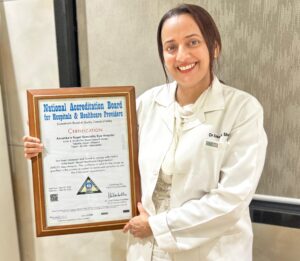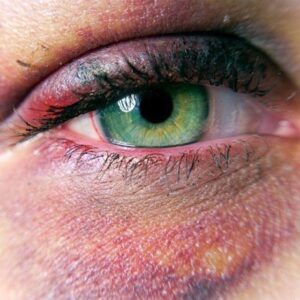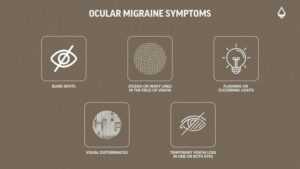
Anushka Super Speciality Eye Hospital
Call: 90044 44422 / 99213 44422 | Timings : 8.30 a.m to 5.30 p.m (Mon-Sat) | Add: Shri Swami Samarth Soc, Kaneri Dhamankar Naka, Bhiwandi




Accredited for Quality Care
Night Vision and Night Blindness: Causes, Care, and Ways to See Better at Night
anushka
24 October 2025
Driving at night or walking in dim light can be challenging for many people. Some find that their eyes do not adjust well in the dark, making them uncomfortable or unsafe while driving. This difficulty in seeing under low-light conditions is often related to night blindness, medically known as nyctalopia.
At Dr. Anushka’s Super Speciality Eye Hospital, Bhiwandi, we regularly see patients who complain of poor night vision — a problem that can often be improved through the right diagnosis, optical aids, and ophthalmic treatments.
Understanding Night Vision
Our ability to see in the dark depends on rod cells in the retina. These cells are sensitive to low light but not to color. For clear night vision, a healthy retina, clear optical media (cornea, lens), and proper adaptation to light and darkness are essential.
Even small issues like dry eyes, uncorrected refractive errors, or early cataracts can interfere with night vision.
What is Night Blindness (Nyctalopia)?
Night blindness is not a disease itself but a symptom of an underlying eye problem. People with nyctalopia can see clearly in daylight but struggle to see in dim or dark environments — such as while driving at night, entering a dark movie hall, or walking in poorly lit streets.
Common Causes of Night Blindness
- Vitamin A Deficiency – Vitamin A is crucial for retinal function; deficiency leads to poor dark adaptation.
- Cataract – Clouding of the lens scatters light, reducing night vision clarity and causing glare.
- Refractive Errors – Uncorrected myopia (nearsightedness) can cause blurred vision in low light.
- Retinitis Pigmentosa – A genetic retinal disorder that affects rod cells and progressively worsens night vision.
- Glaucoma Medications – Some drops constrict pupils, reducing light entry at night.
- Diabetic Retinopathy – Affects the retina’s light sensitivity.
- Corneal Opacities – Scars or haze on the cornea can scatter light and cause glare while driving at night.
Symptoms to Watch For
- Difficulty seeing or recognizing faces in low light
- Trouble driving at night due to glare from headlights
- Slow adaptation when moving from bright to dark areas
- Frequent eye strain or discomfort in dim environments
If you notice these symptoms, it’s essential to consult an eye specialist rather than ignoring them or relying on over-the-counter eye drops.
Optical and Ophthalmic Ways to Improve Night Vision
1. Correcting Refractive Errors
Even mild uncorrected myopia or astigmatism can worsen night driving vision. Proper spectacles or contact lenses with anti-reflective coating help reduce glare and improve clarity.
2. Blue-Cut and Anti-Glare Lenses
These lenses reduce reflections from oncoming headlights and streetlights, making night driving more comfortable and safer.
3. Treating Cataracts
Modern phacoemulsification or laser-assisted cataract surgery restores transparency of the lens, dramatically improving night vision.
4. Vitamin A and Nutritional Support
Diet rich in Vitamin A, lutein, and zeaxanthin (found in carrots, spinach, sweet potatoes, and eggs) supports retinal health and enhances dark adaptation.
5. Managing Dry Eyes
Lubricating eye drops (as prescribed by an ophthalmologist) help reduce blurring and halos caused by dry corneal surfaces.
6. Retinal Evaluation and Treatment
For inherited or diabetic retinal diseases, early diagnosis and treatment like laser therapy or injections can preserve night vision.
7. Maintaining Clean Windshields and Glasses
For drivers, even smudges or dust on spectacles, windshields, or headlights can scatter light and cause glare — simple cleaning can improve visibility.
Tips for Safe Night Driving
- Always use updated eyeglass prescription with anti-reflective coating.
- Avoid looking directly at oncoming headlights.
- Keep your car windshield clean inside and out.
- Dim dashboard lights to reduce internal glare.
- Take breaks to prevent eye fatigue during long drives.
- Visit your ophthalmologist regularly for check-ups.
When to See a Doctor
Persistent difficulty in night vision, especially if associated with glare, halos, or loss of peripheral vision, requires immediate ophthalmic evaluation. Early detection of conditions like cataract or retinitis pigmentosa can prevent long-term vision loss.
At Dr. Anushka’s Super Speciality Eye Hospital, Bhiwandi
Our hospital offers:
- Comprehensive night vision assessment
- Retinal scans and cataract evaluation
- Customized optical correction with anti-glare coatings
- Nutritional and preventive guidance
Being both NABH-accredited and HOTA-approved, we follow the highest standards in eye care and advanced diagnostics to ensure every patient experiences clearer, safer, and more confident vision — day and night.
FAQs
1.Can night blindness be cured?
It depends on the cause. Vitamin A deficiency or cataract-related night blindness can be treated effectively, while inherited conditions may need ongoing management.
2.Which glasses are best for night driving?
Glasses with anti-reflective (AR) or blue-cut coating minimize glare and improve contrast while driving at night.
3.Are yellow-tinted glasses good for night driving?
They may slightly enhance contrast but are not suitable for everyone; consult an optometrist before using them.
4.Does LASIK improve night vision?
Yes, if poor night vision is due to refractive error. However, in some cases, mild halos or glare can temporarily occur after surgery.
5.Can eye exercises or diet improve night vision naturally?
A balanced diet rich in Vitamin A and proper hydration can help, but persistent problems should always be evaluated by an ophthalmologist.
Conclusion
Night vision problems are more common than most people think. But the good news is — with proper diagnosis, nutrition, and the right optical aids, you can significantly improve your night-time visual comfort.
At Dr. Anushka’s Super Speciality Eye Hospital, Bhiwandi, we are committed to helping you see clearly and safely, no matter the hour.
Recent Posts


